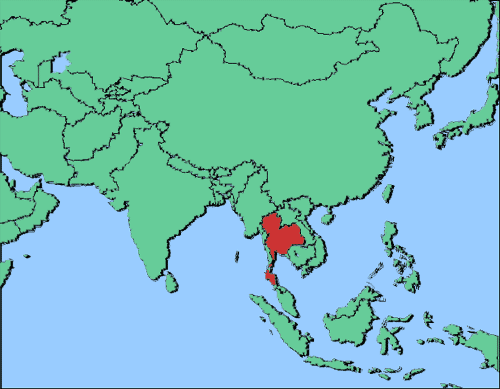
Circle the area on this map

B. With more than 8 million people, Bangkok is the nation's largest city and has 12.6 percent of the country's population. The Bangkok metropolitan area has more than 14 million residents.
D. Thailand is one of the world's top producers of illegal drugs and a major source and user of forced labor. Some men have been kept at sea for years as slave laborers on Thai fishing boats. In southern Thailand, Muslim separatists have been fighting government troops for more than a decade.
A. Buddhists account for 93.6 percent of Thailand's people, 4.9 percent are Muslims and 1.2 percent are Christians. Buddhism is the official religion of Thailand and the nation's king is thought of as the patron and protector of the religion.
C. From the Latin laesa maiestas for "injured majesty," lese majesty is the crime of violating majesty, an offense against the dignity of a reigning sovereign or against a state. Thailand's constitution has contained lese majesty laws since the absolute monarchy was ended in 1932 and the country became a constitutional monarchy.